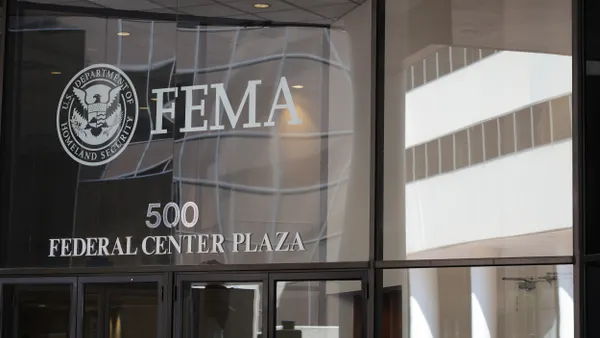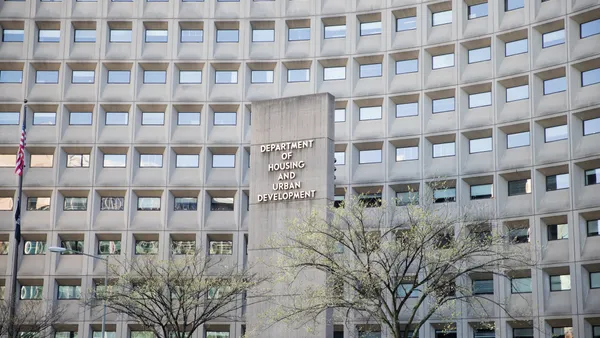Dive Brief:
- San Francisco Mayor London Breed's budget includes a one-time pledge of $1 million over the next two fiscal years to help fund the 37 city-supported homeless facilities that house about 350 people, according to the San Francisco Chronicle and others.
- The move comes just days after a coalition of nonprofits, tenant groups and homelessness advocates collected enough signatures to secure an initiative on November's ballot that, if passed, would tax large businesses to pay for homeless services. The ballot measure asks voters to approve an average half-percent tax increase on all companies' revenue that exceeds $50 million annually.
- The initiative would raise an estimated $300 million a year for homeless housing and services, which is nearly double what the city currently spends.
Dive Insight:
Breed has only been in office for a few weeks, but already she's making good on her campaign promise to address the city's notorious homelessness problem. For decades the city has been recognized as having one of the country's largest homeless populations, with many of the homeless residents suffering from mental illness or addiction. The city and its departments have battled over how best to mitigate the problem, sometimes getting caught up in controversies over methods such as taking down homeless tent emcampents.
San Francisco is among the U.S. cities suffering worst from rapidly increasing housing unaffordability and income disparities among residents. The city's restrictions on development and the fact that it's landlocked and thus hindered from expanding contribute to the problem. Breed proposed easing some of the burden by committing to create a staggering 5,000 housing units each year. The tactic could be a way to moderate housing costs and prevent more residents from getting priced out of their homes and ending up on the streets.
Dips in federal and state funding have caused the city to nearly halve the number of homeless shelters that it contracts with over the past five years. Without the public subsidies, a number of the private shelters had to close. Breed's $1 million injection will give the remaining shelters a boost.
If the ballot initiative passes, the homeless shelters would receive a continued boost from big business' taxes. The funding accrued would be significant considering how many large, high-earning companies — especially tech companies like Twitter, Uber, Airbnb and Salesforce — call San Francisco home.
Getting enough voters on board to pass the measure might prove difficult. Similar proposals in other cities have had uneven success. Palo Alto, CA's direct business tax failed nearly a decade ago, but this May Seattle passed a $275-per-employee tax on companies that gross at least $20 million a year to fund homelessness mitigation programs. That program was then repealed after significant pushback.











